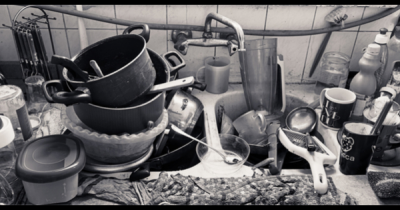Your budget is in place, you’ve found your dream area and now it’s time to start viewing properties. Yet do you want a south-facing garden? Is an open-plan kitchen important? What is the EPC rating? There are a number of things to conside
The process of selling your property can be very stressful and every week it seems like there are new things to do and remember, deadlines to meet and documents to sign. On top of all of this, the last thing you want is an under-performing estate age
Making a mistake when it comes to selling your home could cost you a lot – either breaking a sale or resulting in selling at a lower price than you deserve. Don’t fall into any of these mistakes by planning how to prevent them. Negl
Buying a property is one of the biggest and most stressful decisions of your life. For some it’s the right decision but would you be better off renting? Benefits of owning There are a number of pros and cons when it comes to owning a hous
Whether you like it or not, the world is evolving and it was only a matter of time before our homes turned technical. The term ‘smart home’ has been penned, describing a place filled with Wi-Fi controlled gadgets and soon you’ll be able to cont
Home buying comes with a number of different questions that you want answering yet there is no reason why home sellers won’t also have unanswered thoughts running around their head. Whilst the selling and buying of homes are completely unique p
It's an exciting time - you've had your mortgage application accepted, you're ready to fly the nest and you've starting looking at your dream first home. Yet many people make common mistakes, which prevent them from finding the perfec
The road to selling can be long and daunting but getting the most out of your property is easier than you think. First impressions count Nothing is more important than a first impression so make it a good one. Consider what potential buyers may
Supposedly up there with divorce and losing a loved one, moving home is said to be one of the most stressful things to do in life. However it doesn’t need to be this way and instead of dreading ‘moving day’, look forward to it. It&r
Selling your home can be one of the most stressful periods of life as well as time-consuming. Everyone is desperate for a quick, hassle-free sale but with the possibility of strangers criticising your beloved property, it’s hard not to take thi
Estate agents - some people love them, some people hate them! In a world that is Internet led, it is important to remember that not everything you read on the web is true. Myth 1: All estate agents are the same This is a common misconception. N
The steps to owning a house may seem complicated at first but owning your dream home is easier than you think. Follow this simple 10-step guide to buying a house and you’ll be well on your way. Step 1: Are you ready to become a homeowner? Bu











